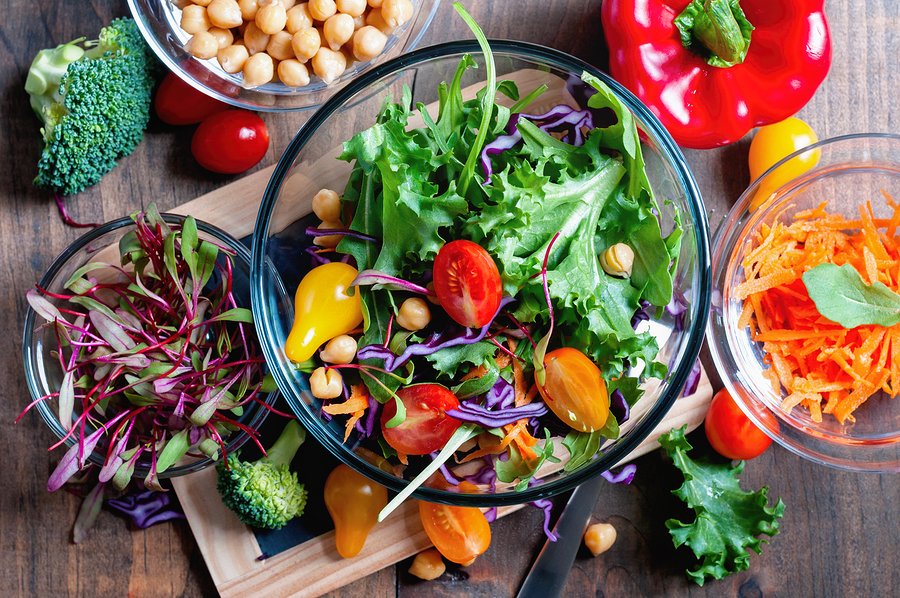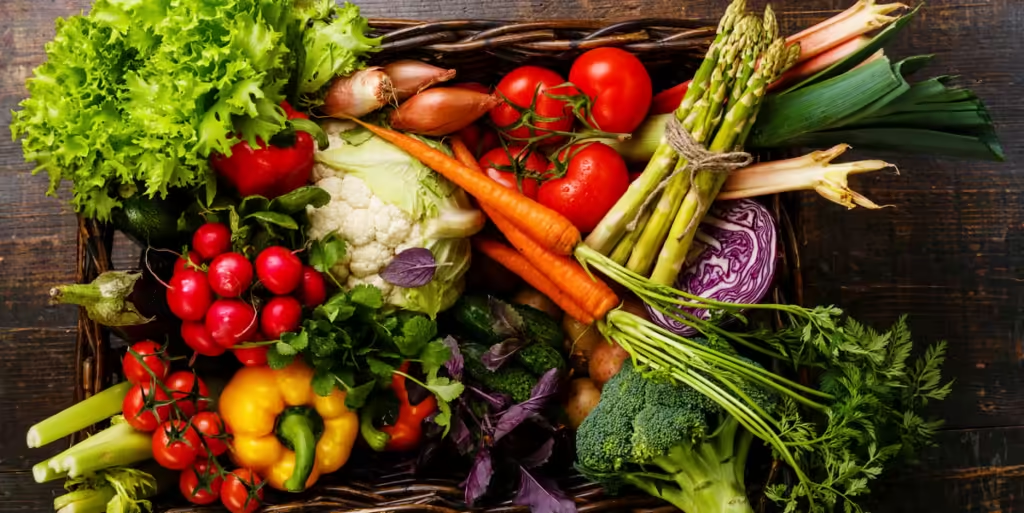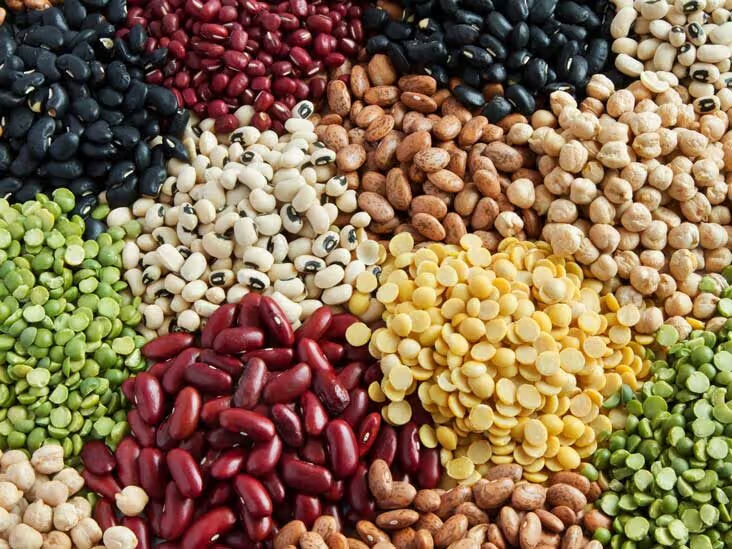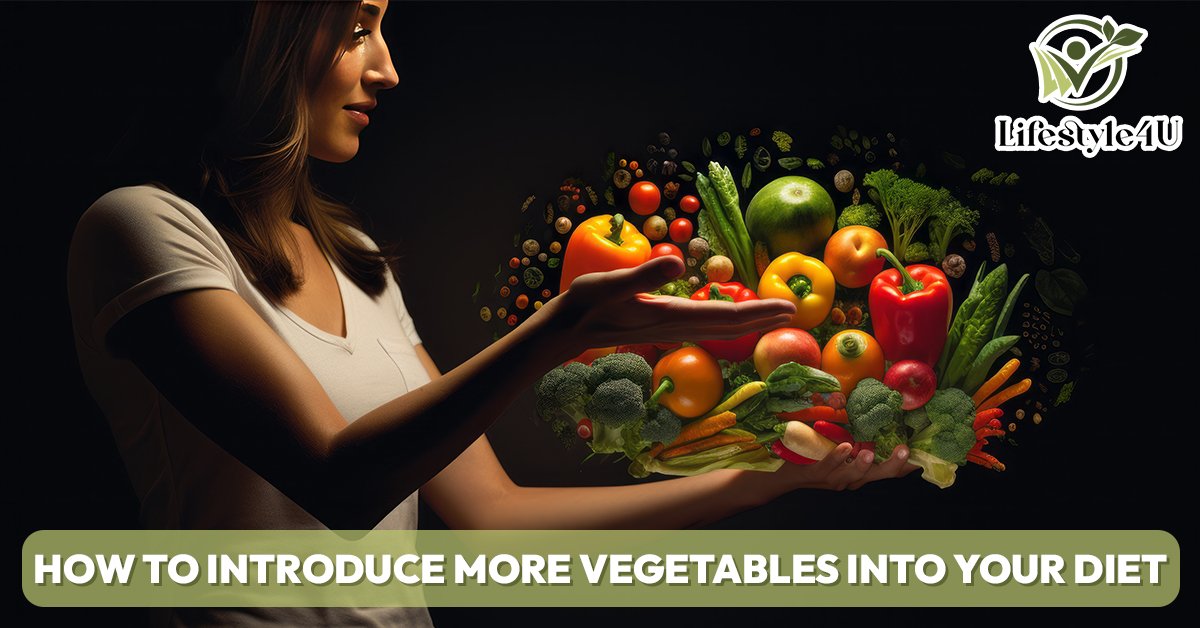Increasing your intake of vegetables is a cornerstone of a healthy diet. It is an herb packed with essential vitamins, minerals, and fiber, and provides numerous health benefits. If you’re looking to up your vegetable intake, here are some practical and delicious ways:
To understand the importance of herbs

Before we get into how to incorporate more veggies into your diet, let’s understand why this is important:
- Nutritional strength: Vegetables contain vitamins, minerals, and antioxidants essential for overall health.
- Fiber Boost: Provides dietary fiber, aids digestion, and promotes gut health.
- Weight Management: Vegetables rich in nutrients and low in calories help manage weight.
- Disease prevention: Regular consumption of vegetables reduces the risk of chronic diseases such as heart disease, diabetes, and certain cancers
Adding vegetables to your diet

Start your day right:
Add spinach or kale to your morning smoothie.
Top your toast with avocado or tomato slices.
Include a portion of steamed vegetables for breakfast.
Vegan Lunch List:
Create a colorful salad with a variety of greens, veggies, and protein sources.
Choose a soup or stew with vegetables.
Fill sandwiches with lettuce, tomatoes, and lots of other veggies.
Dinner times change:
Let vegetables be the stars of your plate.
Try different cooking methods like frying, grilling, steaming and sautéing.
Add fresh vegetables to your pasta sauces, curries, and stir-fries.
Sneaky Veggie Update:

- Add vegetables to sauce or soup.
- Mix zucchini or carrots into your steak or burger.
- Store baked goods like vegetables in muffins or bread.
Importance of vegetables in diet

- Vegetables are the cornerstone of a balanced diet, providing a myriad of nutrients
- well-being, providing essential vitamins, minerals, fiber, and antioxidants that support bodily functions and prevent chronic diseases.
Nutritional Benefits
Vegetables are packed with essential nutrients. For example, leafy vegetables like spinach and kale are rich in diet K, which is vital for bone health. Bell peppers are a tremendous source of nutrition C, enhancing immune features, pores and skin health.
Health Benefits
Incorporating extra vegetables into your eating regimen can lessen the chance of persistent illnesses such as coronary heart disorder, diabetes, and certain cancers. High fiber content material in vegetables promotes digestive fitness and aids in weight management. Additionally, antioxidants discovered in lots of greens assist in fighting oxidative pressure, protecting cells from damage.
Role in Disease Prevention
Regular consumption of greens has been connected to lower risks of many continual illnesses. The fiber in vegetables aids in preserving a healthy digestive system, whilst the various phytochemicals and antioxidants play a function in reducing irritation and enhancing immune reaction.
Challenges of Including Vegetables

Despite their advantages, many people want to encompass sufficient veggies in their diets because of flavor choices, loss of time, or budget constraints. Common Obstacles
Some people find the flavor of positive vegetables unappealing or are unsure how to put them together in an enjoyable way. Others may experience that they lack the time to prepare sparkling vegetables or find them too high-priced.
Overcoming Vegetable Aversion
Gradual advent of veggies, experimenting with one-of-a-kind cooking methods, and incorporating veggies into familiar dishes can help overcome aversion. Additionally, getting to know approximately the benefits of vegetables can inspire people to include more in their weight-reduction plan.
Nutritional value of vegetables
vitamins and minerals
Vitamins A, C, K
Vegetables are a good source of essential vitamins. Carrots and potatoes, for example, are rich in vitamin A, which is important for vision and immune function. Broccoli and Brussels sprouts are rich in vitamin C, which is essential for skin health and immunity, while leafy greens like spinach provide plenty of vitamin K needed for blood clotting and bone health. Important gemstones
Potassium and other minerals found in potatoes and bananas help with fluid balance and muscle contraction. The magnesium found in green vegetables and fruits supports muscle and tissue function, while the high calcium content of broccoli and kale is important for bone health
Fiber Content

Digestive Health
Fiber-rich vegetables like beans, peas, and broccoli help maintain a healthy digestive system by maintaining regular bowel movement and preventing constipation, and fiber also supports a healthy, clean gut microbiota important for overall health.
Tips for Growing Vegetables

Variety is key: Look for a variety of vegetables to avoid boredom.
Preparations: Trim vegetables to shape and size.
Use flavors: Use herbs, spices, and sauces to enhance the flavor.
Plan: Include vegetables in your meal plan.
Snack smart: Opt for veggie-based snacks like carrot sticks with hummus or pickled cucumbers.
Get your family involved: Make vegetarianism a family affair.
Increase Gradually: Start by adding one more vegetable each day and gradually increase.
overcoming challenges
Selections: Gradually introduce new vegetables, offer preparations, and lead by example.
Time limit: Choose pre-cut or frozen veggies for quick and easy picking.
Lack of creativity: Find inspiration from cookbooks, online resources, or cooking classes.
Sweet vegetable recipes

Roasted Vegetable Medley: Toss your favorite veggies with olive oil, herbs, and spices just before roasting.
Creamy Vegetable Soup: Blend a variety of vegetables for a healthy and comforting soup.
Zucchini Noodles (Zoodles) : Low-carb pasta that can be enjoyed with a variety of sauces.
Stir vegetables: A quick and easy way to incorporate more vegetables into your diet.
Vegetable Omelet: Customize your omelette with your favorite vegetables for a hearty breakfast.
conclusion
By incorporating these tips and recipes into your daily routine, you can effortlessly increase your vegetable intake and reap its many benefits. Remember that small changes can improve your overall health and well-being.

Frequently Asked Questions
Aim to eat at least 5 servings of vegetables a day. A serving size would be a bowl of raw or cooked vegetables.
Yes, the refrigerator is a great way to preserve fresh vegetables. Brown them before freezing to preserve their color and texture.
Canned vegetables are readily available but often have added sodium. Look for sodium-free products or wash before use
Lentils, chickpeas, beans and tofu can be good sources of protein and can be substituted for meat in a variety of dishes.
Get them involved in meal planning and preparation, offer a variety of colorful vegetables, and be patient. Leading by example is also important.



